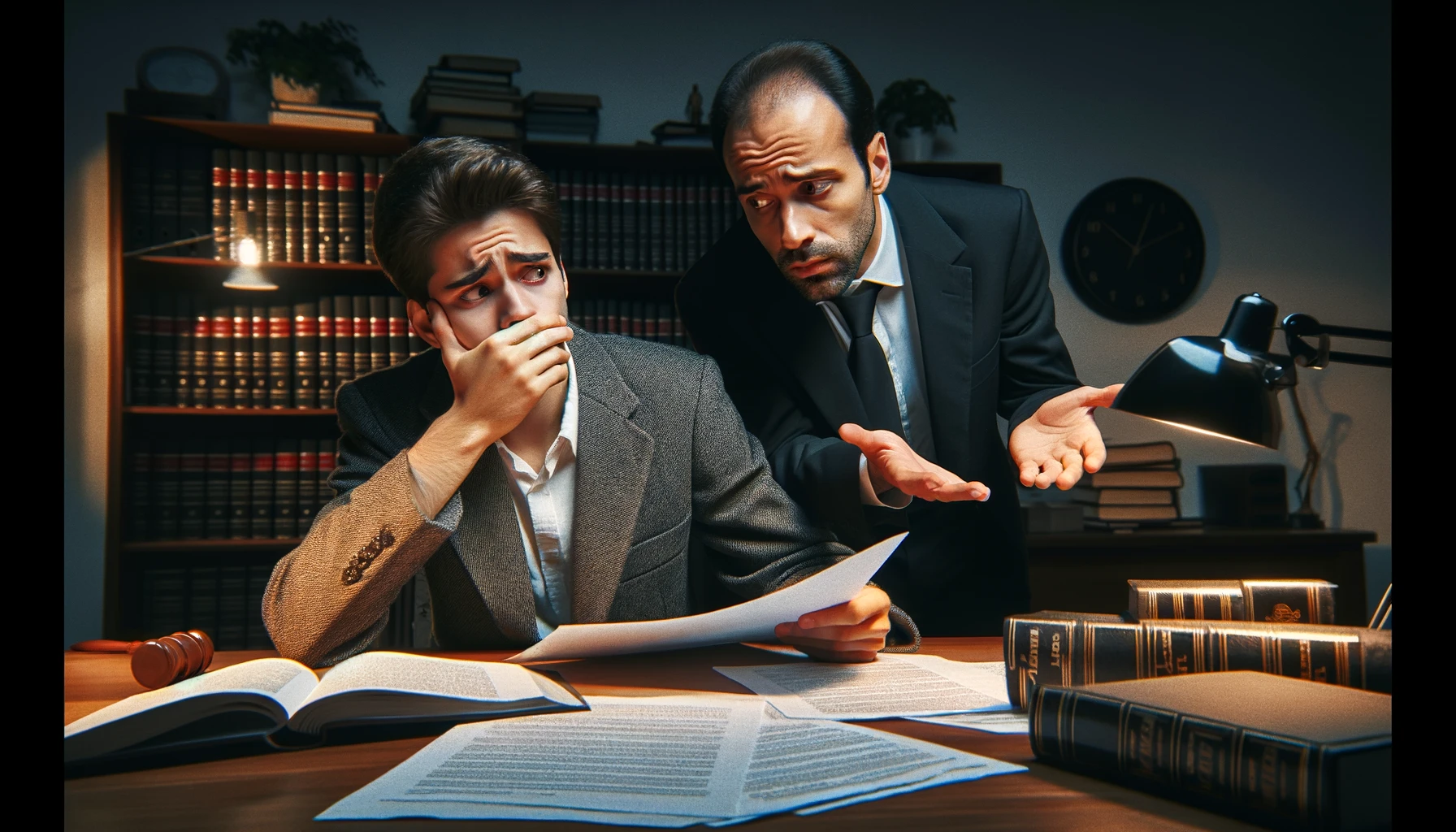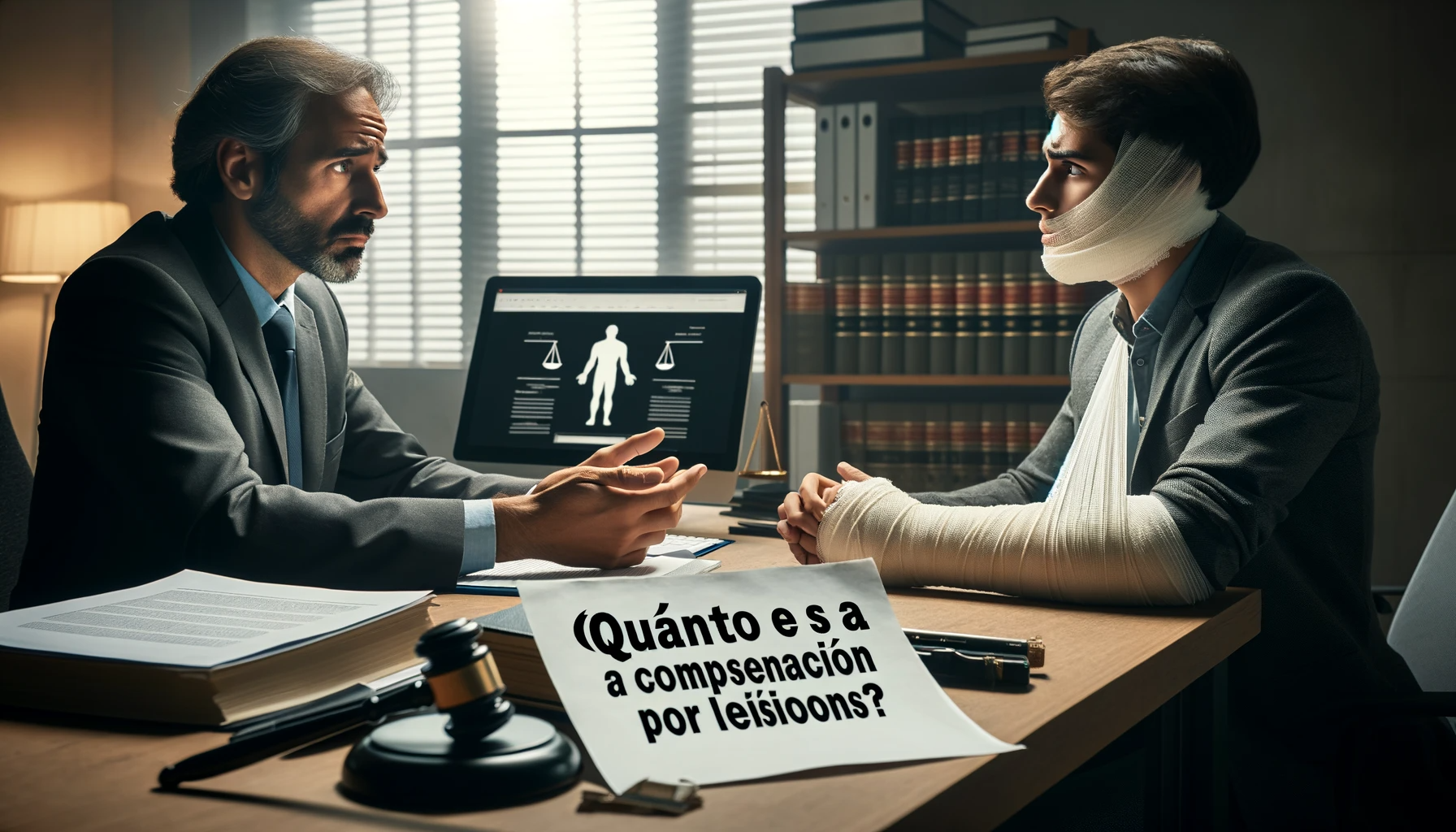Introduction: Understanding Legal Professional Standards
Exploring the World of Legal Ethics
Lawyers operate within a set of professional standards, often referred to as 'legal ethics'. These ethical guidelines regulate an attorney's behavior to maintain high integrity, professional responsibility, and public trust. Understanding these standards offers insight into the significant factors that influence how lawyers communicate and interact with clients, colleagues, and the court.
The Importance of Confidentiality in a Lawyer-Client Relationship
One of the most fundamental principles under the professional standards of lawyers is client confidentiality. This implies that whatever information shared by a client with their lawyer remains private and confidential. Maintaining secrecy is vital for client trust and is a crucial factor that clients should respect when conversing with their lawyer.
Attorney-Client Privilege: The bedrock of Legal Communications
A legal concept related to confidentiality is attorney-client privilege. It ensures the privacy of conversations between a client and their lawyer, protecting them from being disclosed, even in court. However, this privilege has exceptions which, when violated, may lead to tension and conflict. It's essential to understand its boundaries to avoid jeopardizing your lawyer's ability to represent you effectively.
Professionalism and Respect in Legal Discourses
Lawyers are expected to demonstrate professionalism and respect in all their interactions. This includes respect for the legal process, respect for their clients, and respect for other lawyers. Therefore, lawyers can refuse to engage in discussions or behaviors that they perceive as unprofessional or disrespectful.
Comprehending the Boundaries: Solicitation and Advertising
Finally, it's important to note that professional standards also govern how lawyers solicit and advertise their services. False or misleading information is strictly prohibited. As potential clients, understanding this can help you evaluate the credibility of the messages you receive from lawyers and law firms.
Avoid Personal Opinions and Conjecture

Steer Clear from Subjective Statements
When communicating with a lawyer, it is essential to stick with the facts rather than personal opinions. Sharing subjective insights may lead to misinterpretations and miscommunications, potentially derailing your legal process. Lawyers operate on facts, evidence, and laws. Opinions, no matter how strongly held, don't form a strong basis for legal arguments.
Maintain a Fact-Based Communication
Another important aspect to keep in mind is that the focus of any legal discussion should be centered on fact-based communication. Speculations, conjectures, or assumptions have no place in professional communication with a lawyer. Make sure to provide concrete, verifiable information tactically grounded on reality and not on what you think might have happened or what you believe to be true.
Avoid Overgeneralizations
Try to avoid overgeneralizing situations or making sweeping statements without substantial backup. It can be easy to let emotions take over and make broad, generalized statements about the situation at hand. However, these are often based more on personal feelings than actual facts and can hinder the accurate and effective representation of your case.
Resist the Urge to Share Unverified Information
In your conversations with your lawyer, resist the temptation to share rumors, hearsay, or unverified information. These can not only cloud judgement and confuse the case but might also endanger the integrity of your legal proceedings.
Value Objectivity Over Personal Bias
Finally, remember that your lawyer's role is to represent you objectively. Allowing personal bias or opinion to creep into your discussions can compromise this objectivity. Stick to conveying information impartially, providing your lawyer with the best chance to represent you effectively.
Sharing Information Outside the Case
Revealing Case Details to Third Parties
Discussing your case with third parties such as friends, family, or colleagues can lead to significant legal implications. Any information shared outside the purview of your lawyer-client relationship is not protected by attorney-client privilege. This means that these people could potentially be called upon to testify against you using the information you casually shared with them.
The Ramifications of Social Media Posts
In today's digital age, social media can become a treacherous ground when dealing with legal cases. Posting seemingly innocent status updates, photos, or comments related to your case can be misconstrued and used against you. Even private messages are not truly secure as they could be subpoenaed and used in court. It is always advisable to refrain from discussing any aspect of your case on social media platforms.
Interactions with Media and Press
Speaking with the media or press about your case is highly discouraged. While it may seem tempting to plead your case in the court of public opinion, doing so can inadvertently provide the prosecution or the opposing party with additional ammunition against you. Remember, anything you say to the press is fair game for use in your legal proceedings.
Impact of Disclosing Information to the Other Party
Directly communicating with the other party involved in the case is another area where discretion is imperative. Whether it's an opposing party in a lawsuit or the prosecutor in a
Criminal case, sharing information with them can jeopardize your position. Always channel any necessary communication through your attorney, who understands the legal nuances and will work to protect your interests.
Influence of Public Settings on Disclosure
Lastly, remember that discussions about your case are not protected by attorney-client privilege if they occur in a public setting where others can overhear. It's crucial to limit these conversations to private settings with your lawyer to ensure the information you share remains confidential and the integrity of your case is preserved.
Questioning the Lawyer's Expertise
Challenging Legal Aptitude
It's important to remember that lawyers undergo rigorous education and training before they are legally authorized to offer advice. Their expertise is built over years of practice and a deep understanding of various aspects of law. Therefore, questioning their legal acumen or skill set directly might be a poor decision. It can not only offend them but also undermine the trust that is essential in this professional relationship.
Doubting Their Specialization
Just like there are different fields in medicine, law too has numerous specializations.
Personal injury law, family law, criminal law - these are just a few examples of the many areas of law in which an attorney may specialize. If you question a lawyer's expertise in their chosen specialization without reason, it could lead to unnecessary tension. It's always recommended to ask about their experience in a specific area of law beforehand, so there's no room for insecurities later.
Failing to Recognize Experience and Success
Success in a courtroom doesn't always translate to an impressive count of wins and losses. Various factors come into play during a case, and sometimes despite the best efforts, the result might not be in favor. Questioning a lawyer's abilities based on their win-loss record isn’t fair. Furthermore, keep in mind that experienced attorneys have faced challenges and learned from them, which makes them better prepared for future representation.
Comparison with Other Lawyers
Comparing your lawyer to another lawyer is inappropriate and disrespectful. It implies a lack of faith in their abilities and can seriously strain your professional relationship. Instead of comparing, discuss any issues you have with their approach or strategy. An open dialogue could lead to a better understanding on both sides.
Underestimating Time and Effort Required
Lawyers put in significant time and effort into every case, painstakingly going through piles of paperwork, conducting extensive research, and preparing strategic plans. Questioning their expertise simply because they cannot generate immediate results or need more time to understand the complexity of a case can be discouraging and disrespectful. It's crucial to appreciate their efforts and show patience.
Attempting to Dictate Strategy
It's crucial to remember that, although you've hired a lawyer to work for you, they're the experts in their field and should be trusted with deciding upon the best legal strategy. While you may have ideas or preferences, it's not advisable to dictate strategy to your attorneys. Here are a few factors to consider:
Understanding the Expertise of Your Lawyer
Firstly, note that your lawyer has spent years studying the law and gaining practical experience. They are well-informed about intricacies, potential pitfalls, or opportunities that might not be immediately apparent to those without legal training. When you try to enforce your own strategy, you risk undermining their professional expertise.
The Importance of Trust
Building trust with your attorney is key to a successful attorney-client relationship. This implies having confidence in their ability to map out the most effective path for your case. Dictating strategy can strain this trust and negatively impact the effectiveness of their work.
Possibility of Negative Case Outcomes
Undermining your lawyer's strategy could lead to negative outcomes for your case. Lawyers think several steps ahead, considering all possible scenarios and planning accordingly. Interference in this process could disrupt the strategic plan and lead to undesirable results.
Effective Communication Instead of Dictation
That being said, this doesn't mean you should stay silent. Effective communication is vital in a client-lawyer relationship. If you have questions, doubts, or alternate viewpoints, share them with your lawyer. They can incorporate your perspectives into their strategy while still applying their legal knowledge and experience.
Remember, respect for your lawyer's expertise is beneficial not only for maintaining a harmonious relationship but also for achieving the best possible outcome for your case. It's a fine line between being an informed, active participant in your case and attempting to dictate strategy which can potentially jeopardize your results.
Making Dishonest Statements
Manipulating Facts
One of the huge missteps you should avoid when talking to your lawyer is manipulating or distorting the actual facts of your case. This does not only jeopardize your chance of reaching a fair outcome, but it can also tarnish your credibility in the eyes of your attorney- client relationship. Remember, lawyers base their actions and strategies on the information provided by their clients. Misrepresenting details or events may lead to ineffective legal strategies that could be costly and damaging to your case.
Lying about Your Involvement
Telling complete falsehoods, especially in regards to your involvement is another form of dishonesty that could have dire consequences. If you are caught lying, it could result in
Criminal charges or sanctions from the court. Lawyers need to know every detail — the good, the bad, and the ugly — about your involvement in a situation to provide the best representation possible.
Withholding Relevant Information
Not all dishonest statements are lies; at times, they're critical truths concealed out of fear of their perceived implications. While it might seem tempting to withhold information that you feel might harm your case, doing so could significantly handicap your attorney's ability to represent you effectively. Complete and truthful information helps your attorney anticipate challenges, develop suitable strategies and countermeasures.
Exaggerating Damages or Injuries
In
Personal injury cases specifically, exaggerating damages or
Injuries is a common form of dishonesty. It might seem like a trivial lie that could get you more compensation, but consider the risks. If one party can prove that you were dishonest about your condition, it can call into question the entirety of your testimony and severely impact your case.
Misrepresenting Your Financial Status
In some legal cases, such as bankruptcy or divorce, your financial status plays a significant role. Dishonestly portraying your financial situation can lead to fraudulent conclusions, legal penalties, and losing trust in the attorney-client relationship. It's crucial to be 100% transparent about your financial status so your lawyer can provide suitable guidance.
Conclusion: Maintaining Proper Conduct with Lawyers

Upholding Professionalism
To have a fruitful relationship with your lawyer, displaying professionalism is key. This includes punctuality during meetings and promptly responding to their communications. Always remember that lawyers work for several clients, not just you, so respect their time. Avoid making derogatory or inflammatory remarks, which can strain the lawyer-client relationship.
Clear and Honest Communication
Being honest and transparent with your lawyer plays a crucial role in maintaining proper conduct. Even though it might be uncomfortable, providing all relevant information to your case is critical. With this, they will be able to provide accurate advice and effective representation. Remember that lawyer-client communication is legally protected, so don't shy away from sharing vital details.
Understanding Legal Boundaries
It's crucial to understand that while your lawyer is there to guide you, they are not miracle workers. They function within the confines of the law and their professional ethics, so avoid pressuring them into pursuing illegal or unethical actions. Respect their professional boundaries and rely on their expertise to find the best legal solution for your situation.
Respecting Confidentiality
While lawyers are bound by attorney-client privilege, clients too should uphold confidentiality. Refrain from discussing your case with others without your lawyer’s consent. Publicizing case details could harm your case's outcome and put your lawyer at a disadvantage.
Valuing Their Expertise
Lastly, respect and value your lawyer's expertise. Understand that their advice stems from years of experience and extensive legal knowledge. Their suggestions may not align with your expectations, but it's important to trust their judgement. Encouraging open dialogue can help assuage any concerns or questions you might have.
Conclusion
In conclusion, effective communication with your lawyer is key to ensuring that your legal matters are handled appropriately. It's crucial to be cautious about what you say to your lawyer to prevent any misunderstandings or negative outcomes. Always seek legal guidance before discussing sensitive information, and be honest and transparent about your situation. By following these guidelines, you can establish a productive relationship with your lawyer, leading to better outcomes for your legal matters.
Look for an attorney who has the right legal resources for your legal needs.
Contact us here on the
Warmuth Law website or through our hotline 888-517-9888.
Frequently Asked Questions (FAQ's)
1. What should I avoid saying to a lawyer?
It's crucial to avoid making false statements, withholding important information, or discussing confidential matters without the proper legal context. Being dishonest or omitting key details can harm your case and damage your credibility with your lawyer.
2. Can I discuss my case with others without consulting my lawyer first?
It is not advisable to discuss your case with others, especially on social media, without consulting your lawyer first. Sharing details about your case publicly can jeopardize your legal position and compromise the confidentiality of your case.
3. Should I discuss my previous legal history with my lawyer?
Yes, it's important to disclose any relevant legal history to your lawyer. Your previous legal experiences can impact your current case, and your lawyer needs to understand the full context to provide you with the best advice and representation.
4. Can I negotiate legal fees with my lawyer?
Yes, you can discuss legal fees with your lawyer. However, it's important to have a clear understanding of the fee structure, including any potential additional costs, before agreeing to representation. It's also advisable to get the fee agreement in writing to avoid misunderstandings later on.
5. What should I do if I'm unsure about what to say to my lawyer?
If you're unsure about what to say or how to approach a legal matter, it's best to seek guidance from your lawyer. Your lawyer is there to provide you with legal advice and help you navigate the complexities of your case. Being open and transparent with your lawyer will help them provide you with the best possible representation.











